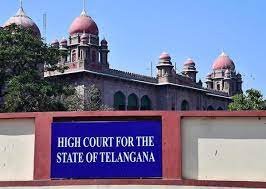The case involves various petitions challenging the early release of 11 convicts who had gang-raped Bilkis Bano and murdered her family members during the 2002 Gujarat riots.
On Thursday, the Supreme Court postponed its ruling on a set of petitions challenging the clemency granted to those convicted in the Bilkis Bano gang rape case, which occurred during the 2002 Gujarat riots.
Justices BV Nagarathna and Ujjal Bhuyan, comprising the bench, reserved their judgment after considering rejoinder arguments from various petitioners.
The case revolves around the early release of eleven convicts involved in the rape and murder of Bilkis Bano’s family members during the turbulent events of 2002.
In a ruling from May 2022, the apex court established that requests for clemency should be assessed in accordance with the policy of the state where the crime took place, rather than the state where the trial occurred.
Before the Supreme Court, several petitioners, including Bilkis Bano herself, contested the decision of the Gujarat government.
During Thursday’s court hearing, Senior Advocate Indira Jaising, representing one of the petitioners, Trinamool Congress (TMC) party leader Mahua Moitra, emphasized the importance of considering both the principles of reformation and deterrence during the process of remission.
She pointed out, “The dignity of women is a constitutional standard. The reduction in the sentence appears to be based on communal considerations. Legally, the remission is inappropriate, and it was wrongly suggested that different high courts held conflicting views on the competent government. Article 32 cannot be utilized to overturn a judgment.”
Advocate Vrinda Grover raised concerns that the convicted individuals were not fulfilling the fines imposed as part of their sentences. She stated, “We need to ascertain whether the state knowingly allowed this illegality and was aware of unpaid fines… because the nominal rolls would have indicated such information.“
In the meantime, the judges requested that the attorneys provide insights on how to strike a balance between inmates’ potential for reformation and the gravity of their offenses. Justice Nagarathna remarked, “This is a situation with two contrasting extremes. Assuming that remission was in violation of the law, how do we balance the nature of the offense with the right to reformation for the convicts? Does this imply that such offenders have no right to reform? What happens if remission is revoked? What becomes of their freedom? We are simply seeking your input.”
Advocate Grover argued that if any illegality is found in the government’s decision to grant sentence commutation, the convicts should be returned to prison. She contended, “This is a clear case of illegality. They should return if the state favored and exercised power arbitrarily and illegally.” Grover also highlighted that the victim only became aware of the remission through media reports and emphasized that the remission orders should have been publicly available online.
Aparna Bhat, another attorney, added that the state and federal authorities had acted arbitrarily, unscrupulously, and with bias. She noted, “They cannot benefit from their wrongdoing without demonstrating reform efforts. The release was unauthorized. Reformation is an opportunity, not an entitlement. The criminal justice system is not vengeful, but that doesn’t mean one can escape accountability without proof of reform.”
Advocate Nizam Pasha also presented arguments in the case before the bench reserved its decision.



